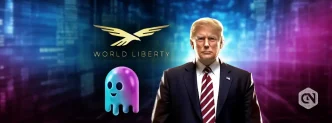Polkadot recently concluded its first parachain auctions round, and the winners have started producing blocks. The development has initiated Polkadot’s sharded ecosystem, offering specialized computation and smart contracts functionality.
In addition, the development will help developers to start building Polkadot’s DeFi and related ecosystem. The parachains belong to Acala Network, the renowned FinTech-based DeFi hub.
Besides Acala Network, names like Moonbeam (EVM-based smart contract platform, Astar Network (EVM and WASM smart contract), Parallel Finance (decentralized staking and lending platform), along Clover Finance (cross-chain support platform.)
Every project started as a parachain and started developing blocks on December 18th. The winners have started predicting their liquid staking and dApps derivatives. The ventures are set to go live before February while the starting tokens tranches, distributed across the auctions, unlocked during January.
Advertisement
Gavin Wood, the former co-founder role at Ethereum Foundation, left the venture in 2016 after disagreeing over Ethereum 2.0’s upgrades. Later, Gavin founded Parity Technologies and even released the whitepaper for Polkadot.
As the document released, Gavin’s vision for a PoS (proof-of-stack) ecosystem with multi-chain functionalities was shared within the market. The ecosystem presented an idea where parachains with specialized computing communicate to a centralized relay chain for validating transactions. Gavin’s design facilitates security and unleashes scalability for dApps.
Resultantly, the Polkadot network raised over 140 million dollars in its 2017 ICO. However, the ecosystem lost over 50% of the finances after the community exposed a series of bugs in the Ethereum wallet. The network recovered from the catastrophe in 2019 and 2020 when it concluded two private sales rounds.
Since Polkadot launched its mainnet in May 2020, only its relay chain was live. The network supported a minor range of transaction types, comprising DOT staking and transfer functions. However, the relay chain did not support smart contract functionality, with the sharded chains assigned the task to enable specialized computation on Polkadot.
The parachains were allocated on a lease basis via auctions where multiple projects compete to store DOT as long as the crowdsourcing funds in return for governance tokens. The auctions will take place in five batches, with a total of 100 slots available.
Advertisement
After the 100th slot gets filled, the first sharded chain will be available for auctions, allowing the parachain ecosystem to change over time.







